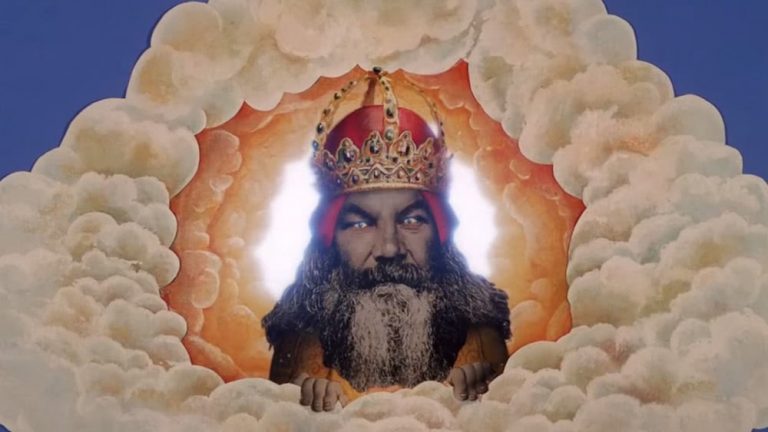It’s a sad story, the tale of It Comes At Night. The A24-produced, Joel Edgerton-starring horror flick received near unanimous praise ahead of its release, with critics calling it one of the most important shockers in years; a new genre masterpiece, certain to send audiences into fits of anxious spasms. But in doing so, the press suffocated the flick with their kindness. Crowds flocked to the film expecting some gruelling, almost unwatchably tense fright fest, and instead got a taught, determinedly simple little chiller.
Not that the film was a commercial disappointment – shot on a budget of five million, it made almost 20. But its word of mouth was shocking; opening to a tidy two and a half million on its first day, it dropped to almost one sixth of that by the second. Disappointed audiences warned their friends: It Comes At Night wasn’t the film they had been promised.
But, like the infected ghouls and starved, black eyed souls that haunt the film, It Comes At Night won’t stay down for very long. It is perfectly placed for rediscovery, and, available to stream now via Stan, will undoubtedly be embraced by a fresh audience who haven’t had their expectations yet set.
It Comes At Night is a horror film about having roommates; about how unpleasant it is to find oneself forever surrounded by people.
Edgerton stars as Paul, a gruff one-time history teacher eerily committed to keeping his family safe in a devastated apocalyptic environment. Isolation is what has kept his brood safe from the disease-addled denizens of the near future, so when he encounters a seemingly friendly and capable pack of fellow survivors, he is suspicious; aggressive. And although he eventually forms a truce with his new friends, the bond is as shaky as a string of saliva.
Which is to say, It Comes At Night is a horror film about having roommates; about how unpleasant it is to find oneself forever surrounded by people. Director Trey Edward Shults keeps things admirably brisk; at a mere 91 minutes, the film clips along at a terrible pace, and strips all but the bleached white bones from the story. It’s a good ‘un.
Love Music?
Get your daily dose of metal, rock, indie, pop, and everything else in between.
Stan are also boasting an extraordinary transfer of Michael Mann’s theatrical film debut, Thief. A kind of cinematic tone poem, it’s a swirl of oil in an alleyway puddle; all neon lights and exploding squibs. Although ostensibly the story of Frank (James Caan), a criminal desperately trying to leave his safecracking ways behind him, the occasionally convoluted plot comes secondary to Mann’s real focus; exploring the dichotomy between a good man and the evil world around him. Much like Manhunter, another Mann masterpiece, the best way to watch Thief is to soak it in like one would a fine scotch; to sit back and let it happen.
While we’re on Mann, why not check out his elegiac, big budget epic, The Last Of The Mohicans. Held in place by a dynamic, soft-eyed performance from Daniel Day-Lewis, the film cartwheels from grisly violence to humanistic drama and all the way back again. It’s a Blockbuster spectacle like few others; an intelligent, classic picture in the Lawrence Of Arabia mould. They really don’t make ‘em like that anymore.
Now, over to Netflix. There are a horde of new original titles heading to the streaming service, but unfortunately, the ruling share of them are not very good. The Alienist is unstoppably dreary nonsense; Seth Rogen’s Hilarity For Charity is about as amusing as a snuff film; and the new series of A Series Of Unfortunate Events is a sad case of diminishing returns.
But, those late to the party should rush not run over to Wild Wild Country, one of the most intelligent and nuanced documentaries of recent years. A masterpiece of the form, it tells the sad, surreal story of the Rajneeshees, a quasi-religious cult that set up shop in rural Oregon, with nuance, grace and humanity. Barry Jenkins, the director of Moonlight, has called it “something special”, and he’s not wrong; it’s a breath of fresh air in the glut of true crime documentaries clogging up our streaming services.
The Life Of Brian and Holy Grail are perhaps the two greatest comedies of all time.
If you’re in the mood for something lighter, mind you, then Netflix have acquired a bevy of Monty Python flicks, including but not limited to Monty Python And The Holy Grail, Monty Python: The Life Of Brian, one season of Monty Python’s Flying Circus and a host of associated documentaries and best ofs. Despite the fact that I, like many other antisocial, spotty young men, fell for Monty Python hard when I was a teenager, for many years in my early twenties I considered them an embarrassing reminder of how generic my taste had once been. But it’s wrong to judge the surrealist comedy troupe on the basis of their devotees; Brian and Holy Grail are perhaps the two greatest comedies of all time, hysterically funny, endlessly inventive doses of madness that still stand unequalled for their impressive zinger-to-belly-laugh ratio.
And now for something completely different: Jason Goes To Hell. The ninth instalment in the Friday The 13th franchise, the flick was pooh-poohed by snobby critics on its release, and considered a betrayal of its hockey-masked killer’s roots by fans of the series. But viewed in isolation, the flick is a batshit fucking crazy art piece; a ham sandwich of a horror film, full of stilted dialogue, horror icon cameos, and some of the most adventurous directing the series has ever seen. Do check it out.

































